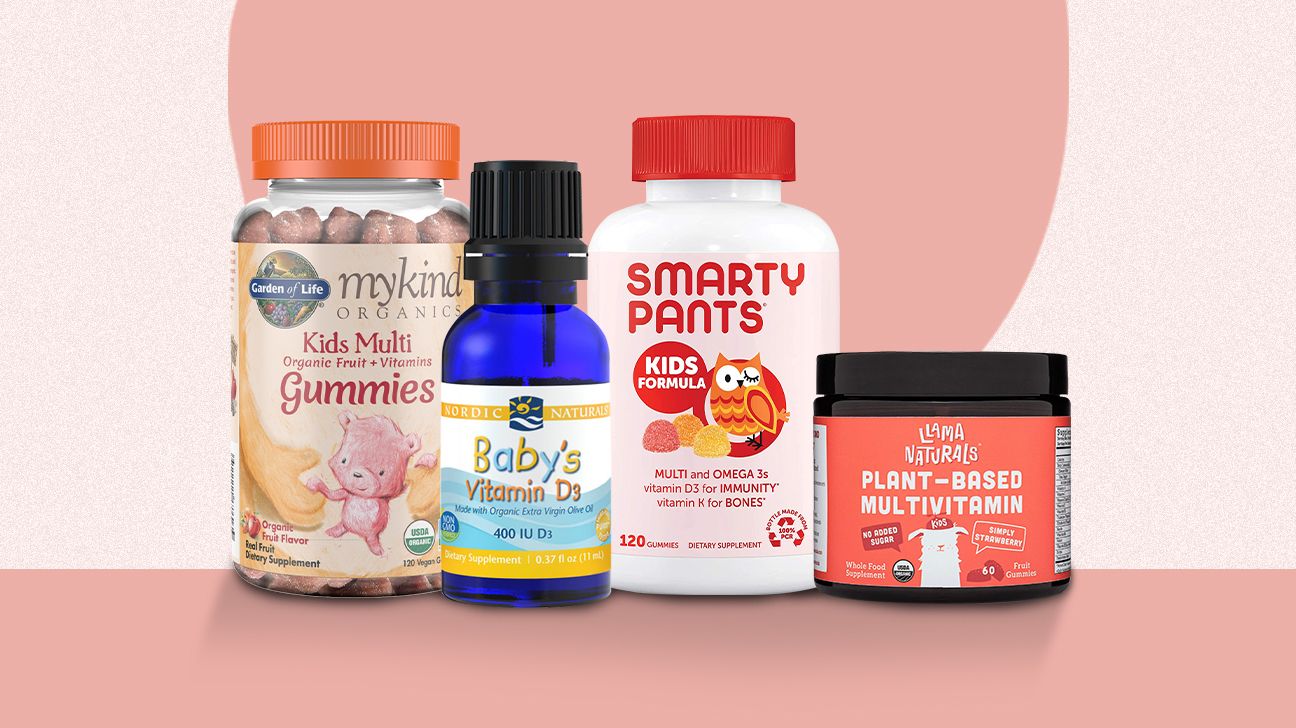9 Best Multivitamins for Kids: Top Picks for Picky Eaters & Growing Toddlers
Ensuring your child gets all the essential nutrients can be a daunting task, especially with picky eaters. That’s where multivitamins come in, providing a safety net to fill nutritional gaps and support their growing bodies. But with so many options on the market, how do you choose the best one?
In this article, we’ll explore the 9 best multivitamins for kids, breaking down their key benefits and what sets them apart. Whether you’re looking for something organic, allergen-free, or packed with extra nutrients, we’ve got you covered.
Understanding the Essential Nutrients for Children
Knowing the essential nutrients for children is key to ensuring their growth and overall health. Multivitamins can help bridge nutritional gaps for picky eaters.
Vitamins Important for Growth and Development
Vitamins play critical roles in children’s development. Vitamin A supports vision and immune function. B vitamins, including B6 and B12, are vital for energy and brain function. Vitamin C boosts the immune system and aids in iron absorption. Vitamin D is essential for bone growth and calcium absorption. Vitamin E protects cells from damage, promoting skin health. Ensure the multivitamin you choose includes these essential vitamins.
Minerals That Support Childhood Health
Minerals are just as important as vitamins. Calcium is crucial for strong bones and teeth. Iron supports healthy blood and prevents anemia. Magnesium helps with muscle and nerve function. Zinc is essential for immune function and wound healing. Iodine supports thyroid function and growth. A good multivitamin will provide these key minerals to support your child’s overall health.
1. Best Overall Multivitamin for Kids
Features and Benefits
This multivitamin stands out because it offers an impressive blend of essential nutrients geared towards active kids. It includes vitamins A, B, C, D, and E, covering a wide spectrum crucial for your child’s development and immune support. Added minerals like calcium, iron, and zinc ensure comprehensive nutritional coverage. With a kid-friendly taste and gummy form, children will actually enjoy taking it daily, reducing the struggle during vitamin time. It’s also free from artificial colors and flavors, promoting a more natural intake of nutrients.
Recommended Age Group
This multivitamin is ideal for kids aged 4 to 12. The dosage and nutrient content are specifically calibrated to meet the needs of children in this age range, supporting their growth, energy levels, and cognitive development.
2. Best Organic Multivitamin for Kids
When looking for an organic alternative, finding the right multivitamin that ensures your child’s health with natural ingredients can be crucial.
Features and Benefits
Each serving of these organic multivitamins combines essential vitamins and minerals derived from natural sources. They often feature no artificial colors or preservatives, which means they’re safe for your child’s sensitive system. Many options are non-GMO and include organic fruit and vegetable blends for added nutritional benefits. These multivitamins support immune function, bone growth, and cognitive development. Many come in gummy forms with kid-friendly flavors that encourage daily intake.
Recommended Age Group
Most organic multivitamins cater to children aged 2 to 12 years. Always check the specific label for age recommendations to ensure it matches your child’s needs. Some brands offer variants tailored for different age groups within this range to provide targeted nutrient levels.
3. Best Multivitamin for Toddlers
When it comes to your toddler’s health, choosing the right multivitamin can make a big difference. Here are the top multivitamins for toddlers.
Features and Benefits
- Nutrient-Rich Formula: These multivitamins often contain essential vitamins and minerals like vitamins A, C, D, and E, plus iron and calcium, crucial for development and immune support.
- Organic Ingredients: Many toddler multivitamins use organic ingredients, ensuring that your little one is free from harmful pesticides and synthetic additives.
- No Allergens: Choosing multivitamins that are free from common allergens, like gluten, dairy, and soy, can help prevent allergic reactions or sensitivities.
- Child-Friendly Tastes: Toddlers can be picky eaters, so these multivitamins come in yummy flavors that your child will love, making it easier for you to incorporate them into daily routines.
- Chewable or Liquid Form: These vitamins come in forms that are easy for toddlers to consume. Chewable tablets and flavored liquids can make it simpler for parents and more enjoyable for kids.
- Ages 1 to 3: Most multivitamins formulated for toddlers are tailored for children aged 1 to 3 years. They are designed to meet the specific nutritional needs of this age group, ensuring they get the right amount of vitamins and minerals necessary for early development stages.
By paying attention to these features and recommended age groups, you can make an informed choice that supports your toddler’s growth and health.
4. Best Chewable Multivitamin for Kids
Finding a chewable multivitamin that’s both nutritious and tasty can be challenging. Here’s a top pick designed to meet your child’s needs.
Features and Benefits
Packed with essential vitamins and minerals, this multivitamin supports overall growth and development. It contains vitamins A, B, C, D, and E, along with crucial minerals like calcium, iron, and zinc. These nutrients bolster immune function, bone health, and brain development. The chewable form ensures easy consumption, making it ideal for children who struggle with swallowing pills. Flavored naturally, it appeals even to fussy eaters, ensuring they get the nutrition they need without any fuss.
Recommended Age Group
Designed primarily for children aged 4 to 12, this chewable multivitamin addresses the dietary needs specific to this age range. It provides the right balance of vitamins and minerals to support their active growth phase. Whether your child is a picky eater or just needs a nutritional boost, this option has got you covered.
5. Best Liquid Multivitamin for Kids
When it comes to children who have difficulty swallowing pills or chewables, liquid multivitamins can be a fantastic option. They offer essential nutrients in a convenient and easily digestible form.
Features and Benefits
Liquid multivitamins are easy to ingest, making them perfect for young children with sensitive palates. Many contain a comprehensive blend of key vitamins and minerals like Vitamin A for vision, B Vitamins for energy, Vitamin C for immune support, and Vitamin D for bone health. Liquid forms often come with added benefits like enhanced absorption rates. Some also include organic ingredients and are free from artificial flavors and colors, ensuring a natural boost to your child’s nutrition.
Recommended Age Group
Most liquid multivitamins cater to children aged 1 and above, with some formulas specifically designed for toddlers. Always check the label for age-specific recommendations to ensure you are providing the right nutrients tailored to your child’s developmental stage.
By choosing the best liquid multivitamin for your child, you can ensure they receive the necessary nutrients to support their growth, energy levels, and overall health.
6. Best Multivitamin with Probiotics for Kids
When you’re looking for a multivitamin that not only provides essential nutrients but also supports gut health, choosing one with probiotics can be incredibly beneficial for your child.
Features and Benefits
Contains Essential Nutrients. A high-quality multivitamin with probiotics will include key vitamins like A, C, D, and B-complex, ensuring your child gets a balanced intake.
Supports Digestive Health. Probiotics promote healthy digestion, better nutrient absorption, and a robust immune system. They can help with common digestive issues like constipation or diarrhea.
Enhances Immunity. The inclusion of probiotics can boost your child’s immune system, making them less prone to infections and illnesses. According to WebMD, probiotics can help in maintaining a healthy gut flora, which is crucial for overall health.
Kid-Friendly Taste and Form. It’s essential that multivitamins designed for kids come in flavors and forms they love, such as gummies or chewables, to ensure they take them consistently.
Recommended Age Group
Suitable for Children Aged 2 and Up. Most multivitamins with probiotics are formulated for children aged 2 years and older. However, always consult your pediatrician to confirm if a specific product is right for your child’s age and health needs.
7. Best Multivitamin for Immune Support
Choosing the right multivitamin can boost your child’s immune system and overall health. Here’s what to look for.
Features and Benefits
Look for multivitamins with Vitamin C, Vitamin D, and Zinc. These nutrients strengthen the immune system, making your child less susceptible to colds and infections. Vitamins A and E are also essential for maintaining healthy skin and mucous membranes, which are your child’s first line of defense against pathogens. Some high-quality multivitamins include antioxidant blends with ingredients like elderberry and echinacea, known for their immune-boosting properties.
Recommended Age Group
Select multivitamins tailored for specific age groups. For instance, options are available for children aged 2-3, 4-6, and 7-12. This ensures the dosage is appropriate and the formula meets the unique nutritional needs of each developmental stage.
8. Best Budget-Friendly Multivitamin for Kids
Features and Benefits
Choosing a budget-friendly multivitamin for kids doesn’t mean you have to compromise on quality. Look for options that contain essential nutrients like Vitamin A, C, D, E, along with Calcium and Iron. These nutrients support overall growth, immune function, and bone health. Gummies and chewable tablets often appeal to kids, making it easier to ensure they get their daily vitamins.
Nutramin Kids’ Multivitamins offers an excellent balance of quality and affordability. They contain natural flavors kids love and exclude artificial colors and preservatives. Ingredients like elderberry and echinacea provide additional immune support. This ensures you get the best value without sacrificing your child’s nutritional needs.
Recommended Age
Budget-friendly multivitamins, like the Nutramin Kids’ Multivitamins, are generally recommended for children aged 4 and above. This ensures proper dosage and nutrient absorption suited to their developmental stage. Always check the label for age-specific recommendations and consult a pediatrician to ensure suitability for your child’s needs.
9. Best Gummy Multivitamin for Kids
Gummy multivitamins are a delightful way to ensure kids get essential nutrients without the struggle.
Features and Benefits
Packed with Vitamins: These gummies often include Vitamins A, C, D, and E. These vitamins support immunity, eye health, and bone development, respectively.
Tasty Flavors: Gummy multivitamins come in various fruity flavors like berry, orange, and grape, which make them more appealing to kids.
No Artificial Ingredients: Opt for gummies that are free from artificial colors, flavors, and sweeteners. This ensures they’re as healthy as possible.
Easy to Consume: The chewable format is perfect for children who have difficulty swallowing pills, ensuring they don’t miss out on their daily vitamins.
Recommended Age Group
Ideal for Ages 2 and Up: Most gummy multivitamins are designed for children aged 2 and above. This makes them versatile for both toddlers and older kids.
Age-Specific Formulations: Some brands offer different formulations to cater to specific age groups, ensuring appropriate nutrient levels for each developmental stage.
Conclusion
Choosing the right multivitamin for your child can make a significant difference in their overall health and development. With options ranging from liquid multivitamins to those with added probiotics and tasty gummy versions, there’s something to suit every child’s preference and nutritional needs. By incorporating these multivitamins into your child’s daily routine, you can help ensure they’re getting the essential nutrients they need for immunity, eye health, and bone development. Remember to select age-appropriate formulations to provide the best support for their growth stages. Your child’s health is worth the investment in quality multivitamins.
Frequently Asked Questions
Why are essential nutrients important for children?
Essential nutrients are vital for children’s growth, development, and overall health. They support various bodily functions, including immunity, bone development, and eye health. Proper nutrition ensures that children develop strong and healthy bodies.
How can multivitamins help picky eaters?
Multivitamins help fill the nutritional gaps in the diet of picky eaters. They ensure that children receive the necessary vitamins and minerals they might miss from their regular meals, supporting their overall growth and well-being.
What are the benefits of gummy multivitamins for kids?
Gummy multivitamins are easy to consume and come in appealing fruity flavors, making them enjoyable for kids. They are packed with essential vitamins like A, C, D, and E, which support immunity, bone development, and eye health. They are also free from artificial ingredients.
Are there specific multivitamins for different age groups?
Yes, multivitamins are often tailored to meet the nutritional needs of different age groups. These formulations ensure that children receive the appropriate nutrient levels suitable for their particular stage of development.
What should I look for when choosing a multivitamin for my child?
When choosing a multivitamin, look for options that provide essential vitamins and minerals suitable for your child’s age. Ensure they are free from artificial ingredients, and consider formats that are easy for your child to consume, such as gummies or liquid multivitamins.
Can multivitamins replace a healthy diet?
No, multivitamins should not replace a healthy diet. They are designed to supplement the diet and fill nutritional gaps, not replace the nutrients obtained from a variety of healthy foods. A balanced diet remains the cornerstone of good nutrition for children.






